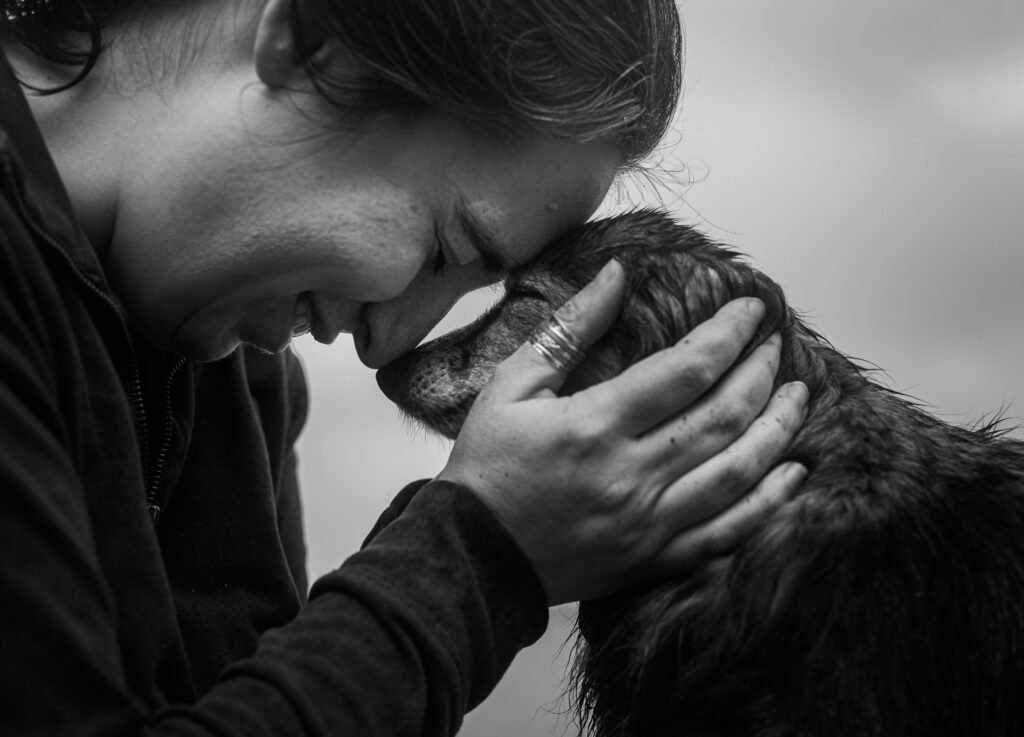
What Is Pet Loss Bereavement Certification and Why It Matters
Losing a beloved pet can be as heartbreaking as losing a human family member, yet pet loss is often misunderstood or dismissed by those unfamiliar with its emotional depth. A pet loss bereavement certification equips individuals with the tools and understanding needed to guide others through this deeply personal form of grief. As more people recognize pets as family members, the need for compassionate, specialized support continues to rise. This certification not only validates the unique mourning process pet owners go through but also ensures that support is delivered with empathy and professional integrity.
Certified pet loss bereavement professionals play a crucial role in helping clients process grief, avoid isolation, and find peace without minimizing their bond with their animal companion. Unlike general grief support, this form of certification focuses specifically on the emotional, psychological, and spiritual dynamics of animal loss. It acknowledges the powerful human-animal connection and addresses grief with sensitivity and skill. With proper training, coaches and caregivers can fill a critical gap in emotional care that’s often overlooked in traditional support systems.
Understanding the importance of this credential is the first step in creating a safe space for people to heal. It also shows potential clients that they are not alone, and that there are trained professionals who genuinely understand their pain. For anyone who feels drawn to help others navigate this type of loss, a pet loss bereavement certification can be a meaningful and impactful path.
What You’ll Learn Through a Pet Loss Bereavement Certification Program
A reputable pet loss bereavement certification program offers a comprehensive education on the grieving process, tailored specifically to the emotional experience of losing a pet. Participants learn about the stages of grief, attachment theory, and the cultural differences in how societies process animal death. The coursework often includes detailed guidance on how to provide emotional support in one-on-one settings, group formats, or community workshops. These tools are essential in building confidence and clarity as a professional grief support provider.
Trainees explore effective communication strategies that validate a client’s experience without judgment or minimization. The curriculum also focuses on trauma-informed care, recognizing that some clients may experience intense or prolonged grief reactions. Ethics play a large role in the training, ensuring that certified professionals understand the scope of their practice and know when to refer clients to licensed therapists when needed.
Students also develop a foundational understanding of grief rituals and healing practices that can offer comfort during the mourning process. Instructors typically share practical exercises and reflection tools that help clients process their emotions and honor their pet’s memory. The goal is to equip practitioners with the skills and heart-centered approach needed to support grieving pet owners across a wide range of circumstances. By the end of training, individuals are well-prepared to offer meaningful guidance through one of life’s most under-supported losses.
Who Should Consider Pet Loss Bereavement Certification
This certification is ideal for anyone who feels called to support others through loss, especially when that loss involves a beloved animal companion. Life coaches, grief counselors, and licensed therapists can benefit by expanding their services into a much-needed area of emotional care. It’s also an excellent pathway for veterinary technicians, pet groomers, dog trainers, shelter workers, or anyone in the animal care industry who frequently witnesses the pain of pet loss.
Spiritual counselors, chaplains, and holistic wellness practitioners often find this certification aligns naturally with their work. It allows them to offer a more complete emotional and spiritual experience for clients mourning a pet. For those who have personally experienced profound pet loss and feel inspired to help others, certification can transform personal experience into professional expertise.
Unlike traditional clinical routes, this certification typically doesn’t require a degree in psychology or counseling. It’s accessible to compassionate individuals from various backgrounds who want to serve in a support role. The shared trait among successful candidates is a deep empathy for pet owners and a commitment to ethical, heartfelt care. If you’ve ever felt a calling to support people through loss, especially one that is often misunderstood, this certification offers a meaningful and impactful way to do so.
How to Choose a Reputable Pet Loss Bereavement Certification Program
Choosing the right certification program is essential to building a trusted and effective practice. First, verify that the program is backed by an established grief training organization or educational body. Accreditation ensures that the curriculum meets ethical standards and that your credential will be recognized by clients and potential partners. Reading reviews or testimonials can offer insight into the experiences of past students and the real-world application of the training.
Consider whether the program is offered online, in person, or in a hybrid format. Online certification can provide flexibility for working professionals and allow for self-paced learning. Be sure to explore the curriculum thoroughly—look for training that includes grief theory, practical techniques, real-life scenarios, and emotional self-care tools. A high-quality program will also address issues like disenfranchised grief, cultural differences in mourning, and how to create inclusive support environments.
Support during and after the training is another critical factor. Programs that offer access to mentors, peer discussion groups, and continuing education opportunities can greatly enhance your growth. Look for programs that offer resources such as templates for client sessions, guided meditations, or community-building tools. Your investment in a program should feel both educational and emotionally enriching.
The Certification Process Step by Step
The path to earning your pet loss bereavement certification is usually straightforward, and most programs are designed to be completed within a few weeks to a few months. Many programs have no formal prerequisites, making them accessible to those without a counseling or medical background. Enrollment typically begins with selecting your course level—basic, intermediate, or advanced—depending on your prior experience in grief support or animal care.
Once enrolled, you’ll access modules that include video lectures, reading assignments, self-assessments, and client case exercises. Some programs include a practicum or role-playing component to practice empathy-based dialogue and grief coaching skills. Assignments often encourage deep reflection and the application of material in real-life scenarios. While some programs include a final exam or quiz, others focus on practical evaluation through coaching simulations.
Upon completion, participants receive a certificate indicating their readiness to provide pet loss bereavement support. This credential can be shared on your website, social media, or professional profiles to demonstrate credibility. Ongoing education may be offered to help you stay current in grief research and practice. The certification process is not only educational but transformative—it deepens your capacity to serve others while enhancing your own emotional insight.
What You Can Do with a Pet Loss Bereavement Certification
Certification opens doors to many fulfilling opportunities. You can establish a private grief coaching practice that specializes in pet loss, or add grief support services to an existing wellness, counseling, or coaching business. Many certified practitioners partner with veterinary clinics to provide follow-up emotional care for clients after euthanasia. This collaboration allows grieving pet owners to receive support at the time they need it most.
You can also offer support groups, memorial workshops, or community events that provide safe spaces for healing. Writing blogs, books, or creating digital courses on pet grief are additional ways to use your training to educate and support the public. Some practitioners work with schools or libraries to provide programs for children dealing with the death of a pet. Others volunteer in animal shelters or hospice centers where animals are part of end-of-life journeys.
The credential boosts your professional reputation and shows clients you’ve received formal training in a sensitive, often-overlooked field. It allows you to confidently market your services knowing you can meet the emotional needs of grieving pet owners. Whether part-time or full-time, this work offers a deep sense of purpose as you help others move from loss toward healing.
The Emotional Impact of Supporting Grieving Pet Owners
Providing grief support requires emotional presence and resilience. Practitioners often feel deeply moved by the pain their clients experience, especially if they’ve endured similar losses. It’s important to develop healthy emotional boundaries and practice self-care regularly. Many certification programs include training on managing emotional burnout, compassion fatigue, and secondary trauma.
Engaging in reflective practices like journaling, meditation, or peer debriefing helps maintain your emotional well-being. By staying connected to a professional support network, you ensure that your own healing doesn’t get overlooked. Helping others heal from pet loss can also deepen your empathy, strengthen your communication skills, and enhance your sense of fulfillment.
The bond formed with clients during grief work is profound. You are walking alongside someone during one of the most vulnerable times in their life. With each session, you have the opportunity to offer comfort, clarity, and hope. The emotional investment is real, but so is the reward of making a lasting difference in someone’s life.
How Certification Elevates the Quality of Pet Loss Support
There is a significant difference between offering informal comfort and providing structured, trained support. Certification gives you the tools to move beyond well-meaning advice into strategic, compassionate coaching that truly helps clients process their pain. Clients notice when a practitioner has been properly trained—they feel seen, understood, and supported.
With pet loss bereavement certification, you become part of a movement that brings dignity and care to an often-dismissed type of grief. It empowers you to offer personalized, trauma-informed support that is both professional and heart-centered. Certification also communicates to potential clients and collaborators that you’ve taken the time to learn best practices and ethical frameworks.
Your role becomes not just about listening, but guiding others through healing. You’re equipped to identify complicated grief patterns, recognize when a referral is necessary, and help clients develop coping tools that honor their bond with their pet. The result is a better experience for both clients and professionals—and a stronger community of support for those mourning the loss of a beloved animal.
FAQ: Pet Loss Bereavement Certification
Q1: Do I need a counseling degree to get certified in pet loss bereavement?
No, most programs are designed to be accessible to individuals from various backgrounds, including coaching, animal care, and spiritual support.
Q2: How long does a typical certification program take?
Programs vary, but many can be completed in 4–12 weeks depending on format and time commitment.
Q3: Will this certification allow me to work with clients one-on-one?
Yes, it prepares you to offer emotional support to individuals, either in private practice or as part of an organization.
Q4: Can I complete the certification online?
Absolutely. Many respected programs offer fully online courses that include video lectures, reading materials, and assessments.
Q5: Is pet loss support really in high demand today?
Yes, as more people view pets as family, the need for compassionate, knowledgeable grief support is growing significantly.
Q6: What makes this certification different from general grief counseling?
It focuses specifically on the emotional dynamics of pet loss, providing specialized tools to navigate this unique form of grief.
Q7: How much does it typically cost to get certified?
Prices range from around $300 to $1,000 depending on the provider, length, and level of support included in the program.


